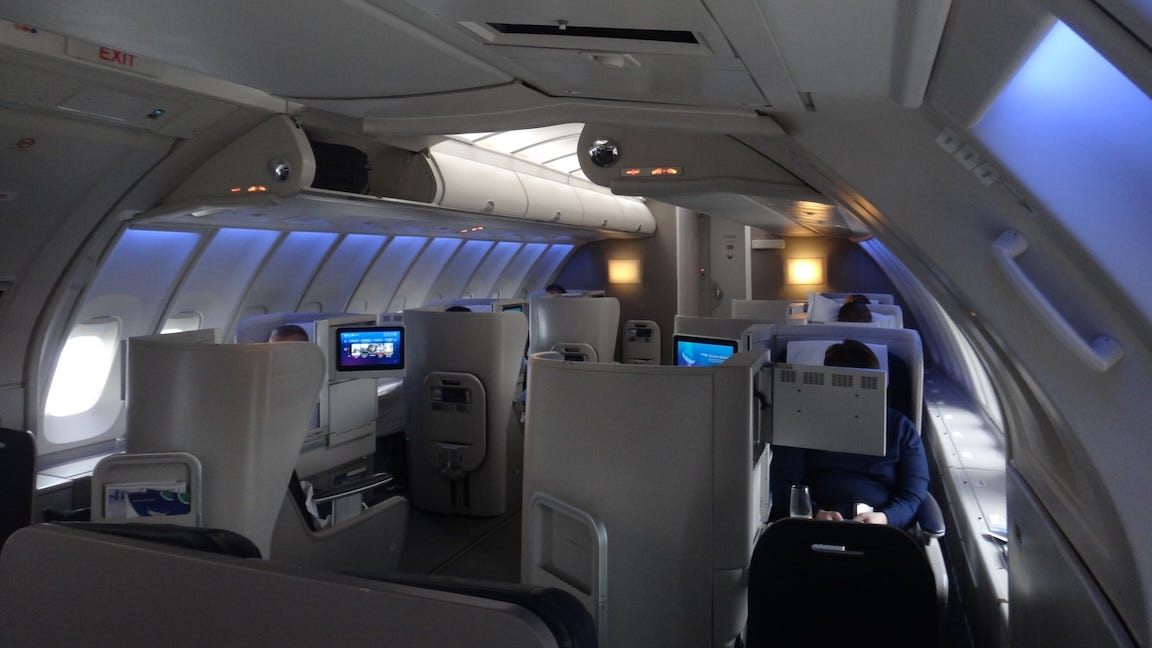Oliver Explains: Why is Business Class sometimes cheaper than Economy?
There are five reasons
Every now and then airline revenue managers deliver a little surprise and delight. Passengers shopping for flights find that Business Class is cheaper than Economy. Or some other cabin is cheaper than the one below.
There are three possibilities:
1. First is cheaper than Business, Premium or Economy
2. Business is cheaper than Premium or Economy
3. Premium is cheaper than Economy.
In practice, if a higher cabin seat is cheaper it is likely to be so relative to the next cabin down rather than several cabins down.
If you find Premium cheaper than Economy, or First cheaper than Business, you should buy that plane ticket. If you find First cheaper than Economy you should buy a lottery ticket.
Why do revenue managers implement this pricing? We can be sure that it is not out of the goodness of their hearts. It is to do with the way that Revenue Management (RM) works.
This is the first article in a new series on Airline Revenue Economics called “Oliver Explains”. This is when I take things that are either important tools in a revenue manager’s kit, sound a bit odd or seem complicated. Hopefully I will be able to make them sound simple.
Coming up in “Oliver Explains” we will have:
1. Overbooking
2. Demand forecasting
3. ATPCO fare categories
4. What is a bid price?
5. How is airline revenue management like an auction?
6. Using public data to estimate secret airline performance indicators
7. How are ticket prices calculated?
8. Why is an aircraft seat map like a demand curve?
9. Why do some flights seem to be so extortionately priced?
Not necessarily in that order.
Some of you might find these ideas simple. We all had to start somewhere. In that case, don’t worry, other articles will be coming soon.
So why is Business Class or some either higher cabin sometimes cheaper than Economy? Read on…
Explanation 1: the lower cabin is heavily booked but the higher cabin is not
Aircraft have only a fixed number of seats. Flights are made available for sale roughly 11 months to a year in advance. Sometimes many people book up seats far ahead.
Maybe there is a wedding in the destination the next day. Possibly a large conference or business event is happening. Perhaps there was a popular TV programme about lions and people decided to go on safari.
If there is a demand surge before you go shopping for seats, you might find that all the cheapest seats have been sold out.
This can also explain why sometimes people believe that when you search for a flight, do not book and then come back the airline “remembers” you did not buy and increases the price.
From an RM perspective this would be silly. The fact that a passenger did not buy beforehand could mean that they are desperate to buy now. But it could also mean that they found the price too expensive.
The more likely explanation is that a shopper looks for flights when, say, dates of a wedding are announced. They then go away and discuss it with the family. By the time they come back Auntie Mabel and Uncle Fred, who were also invited, have already snapped up the cheap seats.
Eventually, demand in a lower cabin can catch up with demand in a higher cabin. Airlines generally sell the last available seat for much more than the first, or even the hundredth. So it can sometimes make sense that the last seat in Economy is cheaper than the first or second seat in Business.
That can make Business cheaper than Economy.
One extreme case is London Heathrow to Doha on British Airways. At the time of writing a fully-flexible Economy ticket is a chunky GBP 4,494 (USD 6,110). Meanwhile Business Class can be had for GBP 3,029 (USD 4,118). If BA ever sells out in Economy but has Business currently empty this may be what you would see.
Explanation 2: the lower cabin is expected to be heavily booked but is not yet
Travel shoppers often look at seat maps to try and figure out how busy their flight will be. This can be a good indicator but is not necessarily so.
Some airlines charge for seat reservations. A British Airways World Traveller seat map often looks empty for 352 days and then all of a sudden fills up at 72 hours prior to departure when a flight moves from control in head office to airport control.
Gentle reminder: most articles are now for paying subscribers. If you have subscribed already, thank you for supporting me. If you are subscribing now, I am offering 25% off here.
Keep reading with a 7-day free trial
Subscribe to Airline Revenue Economics to keep reading this post and get 7 days of free access to the full post archives.

